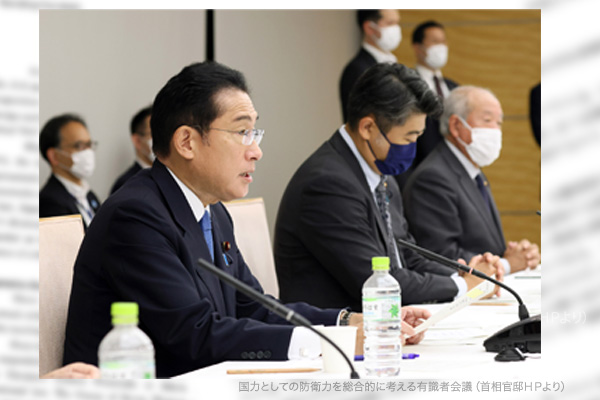North Korean leader Kim Jong Un is forging ahead with missile launches. Russian President Vladimir Putin is intensifying attacks throughout Ukraine. Chinese President Xi Jinping is set to become a de facto emperor for life. Japan now faces a defense crisis created by the three grotesque countries. Japan’s challenges are (1) to amend the constitution to detach the Self-Defense Forces from the police framework and transform the SDF into normal armed forces and (2) to beef up military capabilities. As the first challenge takes time to be tackled, the second one is a current challenge for Prime Minister Fumio Kishida.
Tax hikes would destroy the Japanese economy
Japan as a whole has neglected the military for more than 70 years since the end of World War II. The consequences of the neglect are serious. The SDF are plagued with shortages in personnel, munitions, repair, stockpile, spare parts and every other field, leaving war-sustaining capabilities in question. To cover these shortages, the government will double defense spending in five years.
The two pillars of a nation are a sound economy and a strong military. Prime Minister Kishida, who claims his cabinet as a policy-executing cabinet, should make clear his recognition that Japan is now in a state of emergency instead of peacetime and should fundamentally turn around its national defense system. Given that the Japanese economy is still mired with deflation, the late former Prime Minister Shinzo Abe said Japan should issue defense bond rather than raising tax to strike a balance between economic growth and national defense under a state of emergency. It may be reasonable for Kishida to accept Abe’s advice.
Within the government, however, the Ministry of Finance is spearheading opposition to defense bond issuances, giving priority to the primary budget balance. On September 26, Finance Minister Shunichi Suzuki told his advisory panel, the Fiscal System Council, that Japan’s dependence on deficit-financing government bond issuance for its defense buildup would destabilize the economy during a state of emergency, putting a brake on the defense bond issuance idea.
On September 30, the MOF led discussions of a panel of experts to consider defense capabilities, emphasizing the significance of securing stable financial resources for enhancing defense capabilities. That mean tax hikes. The MOF warns that any more government bond issuance would trigger a free fall in government bond prices, but the Japanese economy still plagued with deflation is unlikely to withstand the burden of new tax hikes.
Per capita burden to be limited to 8,000 yen
Hideo Tamura, a columnist for the Sankei Shimbun newspaper, has pointed out that Japanese companies’ in-house reserves have increased by 49 trillion yen year on year to some 500 trillion yen, with household financial assets totaling 1,000 trillion yen, meaning the presence of 1,500 trillion yen in reserves in business and household sectors.
To boost defense spending to 2% of Japan’s gross domestic product in five years, Japan would have to increase defense spending by 5 trillion yen in five years, or by 1 trillion yen a year. Given Japan’s population at 126 million, some 8,000 yen in per capita government bond issuance may cover the annual increase of 1 trillion yen. Per capita defense spending in Japan now stands at 40,000 yen, compared with 210,000 yen in the United States, 120,000 yen in South Korea and 100,000 yen in Britain.
If business and household sectors cooperate in strengthening the SDF and allowing the economy to grow smoothly, the economy will become strong enough to withstand tax hikes. Prime Minister Kishida should not side with the MOF that gives top priority to a primary budget balance.
Yoshiko Sakurai is President, Japan Institute for National Fundamentals.


